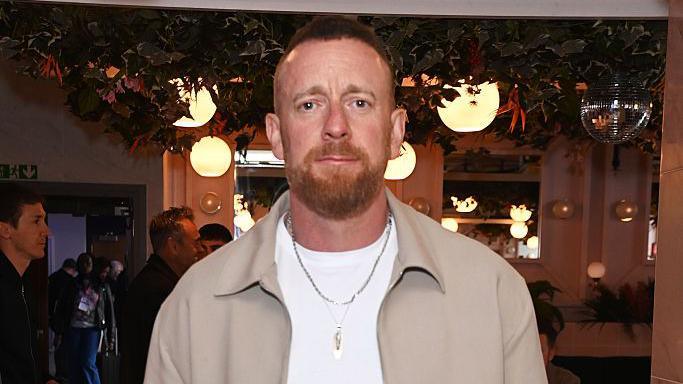Sir Bradley Wiggins, a celebrated British cyclist and five-time Olympic champion, has recently been candid about his struggles following retirement, expressing his gratitude towards the controversial figure Lance Armstrong. Wiggins, who made history as the first British winner of the Tour de France in 2012, described Armstrong as a source of “great strength and inspiration” during a tumultuous phase of his life marked by substance abuse.
In an interview with BBC Radio 5 Live, Wiggins disclosed that since retiring in 2016, he has developed a supportive relationship with Armstrong, who was stripped of seven Tour de France titles due to doping violations. Wiggins credited Armstrong with playing a significant role in his recovery from drug addiction, emphasizing that on a personal level, Armstrong has been exceptionally kind to him. “He’s been a great strength to me and a great inspiration,” Wiggins stated, highlighting that his positive experiences with Armstrong might not align with the negative public perception surrounding the former cyclist.
This revelation comes after Wiggins shared his painful journey with addiction in The Observer, where he opened up about his cocaine dependence that burgeoned in the years that followed his retirement from professional cycling. Wiggins remarked that he felt a sense of indebtedness to Armstrong for the support he received during his struggles. “Lance has been very good to me… He is one of the main factors why I’m in this position I am today mentally and physically,” Wiggins commented, stressing that he measures individuals by how they treat him, and his relationship with Armstrong has been beneficial.
When asked how often he communicates with Armstrong, Wiggins noted they are not in daily contact, but he is engaged in collaborative work with him. This summer, Wiggins is set to join Armstrong in covering the Tour de France for his podcast, “The Move.” By taking this step, Wiggins seems to bridge the gap between his past accolades and present endeavors, showcasing how he channels his experiences into new ventures.
In a profound moment of reflection, Wiggins addressed some of his turbulent post-cycling experiences. He articulated feelings of blame directed toward cycling for various hardships in his life, alongside the jealousy he felt from his father and the inappropriate grooming by a coach during his youth. Moreover, the emotional toll of his journey became a focal point, particularly regarding his family’s concerns over his inclination toward drug use after retirement.
Wiggins, who has been incredibly open about the psychological wounds resulting from a career spent under the grueling spotlight of competitive cycling, noted that he had never sought therapy or counseling during his tenure as a professional athlete. He disclosed, “You’re perceived as a cyclist—certainly when you’re an Olympic champion or the Tour de France winner—to be incredibly mentally strong.” That belief, partly fueled by the pressures of expectations, led him to shy away from seeking help, which in hindsight, he acknowledges was a mistake.
With victories spanning the 2004, 2008, and 2016 Olympics, alongside his celebrated achievement in the 2012 Tour de France, Wiggins’s journey from a decorated athlete to a figure facing personal challenges serves as a powerful narrative on the trials faced by sports icons outside the competition arena. He candidly shared, “I’m never going to make the same mistake twice, so I’ve sort of vowed that to myself. I’ve learned from the past,” signifying a commitment to both personal and professional growth.
The narrative surrounding Wiggins encapsulates the complex relationship athletes have with fame, pressure, and personal struggle. As he approaches nearly a decade since his retirement, Wiggins’s story is a reminder of the resilience required to navigate life beyond the accolades, and the importance of forging human connections, even with those who may carry a controversial past, such as Armstrong.
Through their collaboration, Wiggins highlights the significance of understanding one’s journey, healing from past mistakes, and transforming pain into a story of hope and recovery, increasingly relevant in discourse surrounding athlete mental health and substance abuse.



